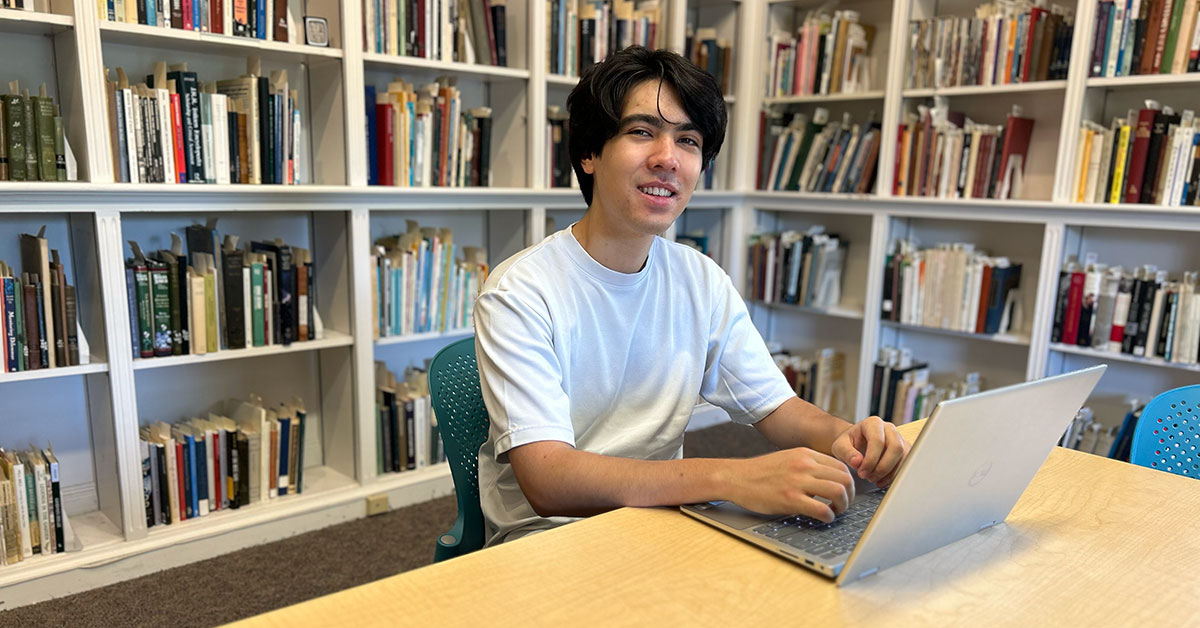From conservation to coding

A rising junior tests a career in computer programming
Gabriel Albernaz ’26 once planned on being an ecologist able to write computer programs. He now aspires to become a computer programmer who works in many fields, including ecology.
The rising senior tried out his new career path during a summer internship with the Lexomics Project, a long-running effort based at Wheaton College to build machine learning tools that scholars can use to analyze texts. The native of São Paulo, Brazil, collaborated with a team of a dozen students and faculty to begin converting the extensive Lexos program from a web-based tool into software that researchers will be able to install and customize on their own computers.
“I’m learning how much I am driven to, and enjoy, solving problems,” Albernaz said. “I can see myself working in coding in the software industry for a while. This internship gave me a very good feel for what it’s like to work on program development every day, all day.”
Professor of Computer Science Mark LeBlanc, who leads the Lexos development project, manages the student interns just as a software development team in industry would be coordinated, Albernaz said. There are weekly meetings to report on progress, discuss problems and set goals. Then, each student works on their assigned tasks for the week.
“Professor LeBlanc creates a professional work atmosphere in classes, but in this internship, it’s more pronounced. We’re all part of the product team,” he said, noting that he and the other students are encouraged to explore improvements to the program that go beyond their assigned tasks. “I like how we’re treated in that way as team members. I see myself more invested in what I’m working on.”
At the same time, Albernaz said the internship helped him expand his skills. For one thing, the Lexos program consists of roughly 30,000 lines of code, incorporating programming ideas and approaches that students don’t encounter in coursework. “I’ve learned so much about the Python programming language. When you drop into a program that already exists and does so much, it really expands your knowledge about what you can do,” he said.
Beyond that, the team’s work makes use of industry-standard collaboration resources, most notably GitHub, which helped him gain familiarity with an environment that is widely used by professional programming teams.
The internship represents the type of faculty-led research opportunity that brought Albernaz to Wheaton in the first place. Previously, he served as an ecological research assistant for another faculty member, studying plant diversity along the edges of streams and woodlands.
The experience of conducting biological research led him to question his original plans for a career in ecology and conservation. “I enjoyed that experience. I really did. But I realized it wasn’t what I wanted to do for the rest of my life,” he said. “And that’s when I started to take more computer coding classes and have a good feeling about this as a long-term direction for me.”
“What’s really cool about computer program development is that you can work in any field. With Lexos, we’re treating texts as data, which is very new to me and interesting,” he said. “But I could apply these skills to other data sets in biology, ecology, even acoustic ecology.”
